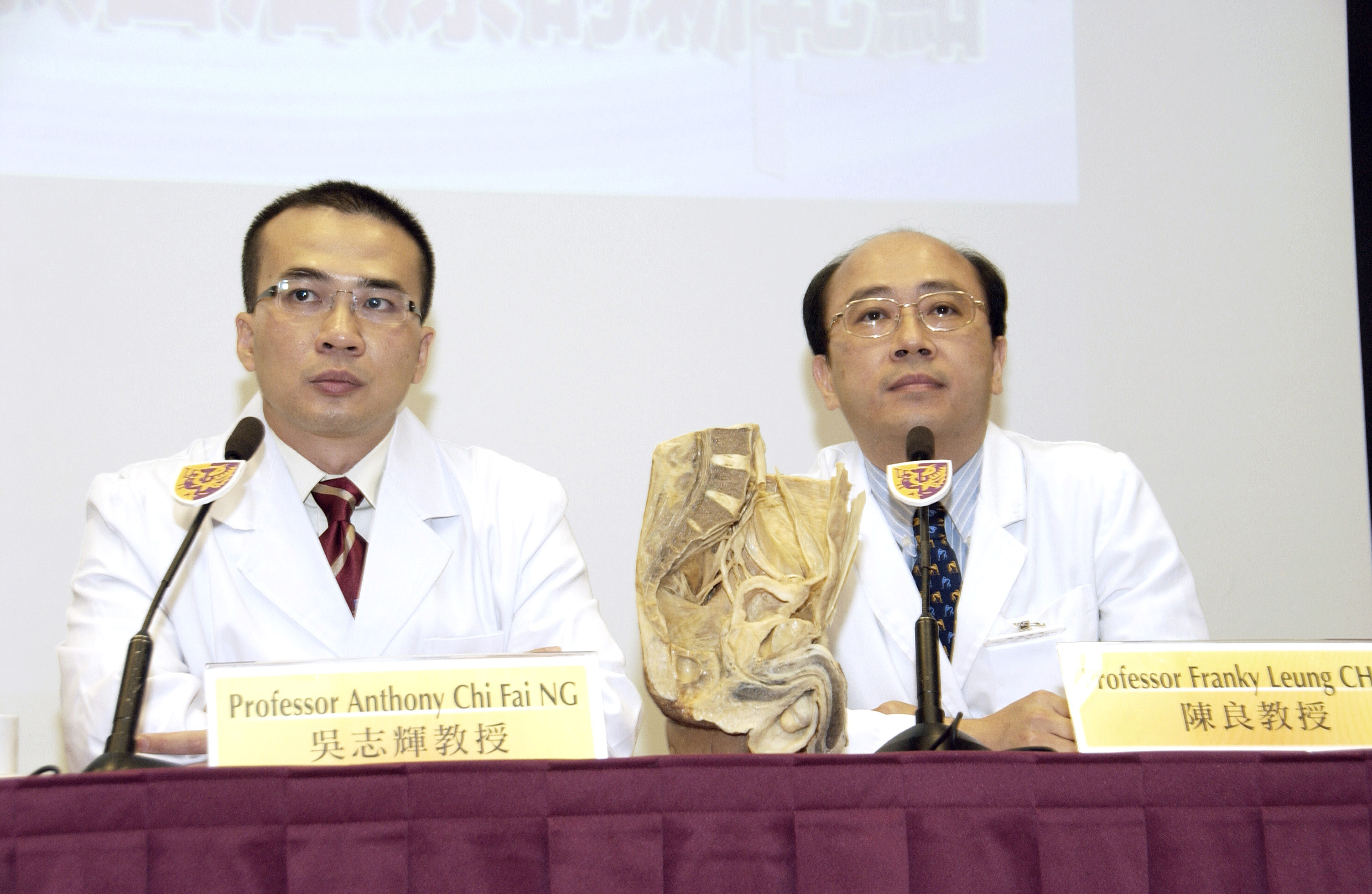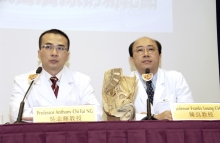News Centre
CUHK Breakthrough Research May Point Way to New Treatment for Prostate Cancer
Errors in the way the body’s cells process information by means of signalling pathways are responsible for many diseases such as cancer, autoimmunity and diabetes. In a paper just published in the leading international journal Cancer Research, researchers from the Department of Anatomy and the Department of Surgery at The Chinese University of Hong Kong describe their discovery of a new cell signalling pathway that is implicated in the development of prostate cancer. Their study finds ERRγ, a particular subtype of estrogen receptor-related receptors (ERR), suppresses proliferation and tumour growth of prostate cancer cells and implies a new therapeutic target for prostate cancer.
Their work could eventually point the way to new methods of treating this cancer, because it shows that ERRγ which is bound up with certain cell regulatory processes, may also have potential as a new drug target.
Professor Franky L Chan of the Department of Anatomy explained, “Previous studies of prostate cancer cells in our laboratory had shown that the ERR subtype known as ERRγ is present in normal human prostate epithelial cells but exhibits reduced expression in many prostate cancer cell lines and clinical neoplastic prostate tissues. This immediately suggested to us that ERRγ might play a part in regulating prostate cancer.”
“Our most recent study has shown that stimulating the expression of ERRγ either directly or by means of the ERRγ-specific drug, DY131, can indeed significantly suppress the growth of two prostate cancer cell lines, LNCaP and DU145. We also show that this inhibitory action of ERRγ is probably related to the way it interferes with the cell-cycle. Taken together, our results show that ERRγ may both suppress tumours in prostate cancer cells and also prevent their proliferation.”
Professor Ng Chi-fai of the Division of Urology, Department of Surgery, commented, “Prostate cancer is now the fourth most commonly diagnosed tumour in men and ranks seventh among causes of male cancer deaths in Hong Kong. What is particularly alarming is how rapidly the incidence of this cancer has risen in Hong Kong over the past 20 years, from less than 200 cases in 1983 to about 1,000 cases in 2004. In the past two years, more than 100 new cases were diagnosed in the Prince of Wales Hospital alone. This dramatically increasing prevalence, also observed in Shanghai, Singapore and Taiwan, reflects, to a large extent, a more westernized diet, the aging population, and improved diagnostic techniques.”
Worldwide, more than 700,000 new cases of prostate cancer are diagnosed every year. In the United States, prostate cancer is the most commonly diagnosed cancer in males and the estimated life time risk of the disease is around 20%.
“In early stage disease,” Professor Ng continued, “the removal of the prostate by minimally invasive robotic assisted surgery can offer a cure. However, one third of these patients when diagnosed, already had disseminated disease.”
“When the disease has spread, or metastasized, the only feasible approach is to reduce the severity of pain and other symptoms. Currently, androgen deprivation therapy is the first line therapy for metastatic prostate cancer. However, the disease will often progress to the androgen-independent stage. The only main treatment options then left are chemotherapy and radiotherapy, which cause unpleasant side effects and in any case do not significantly prolong life. These facts underline the importance of continuing research into the effective detection of early prostate cancer and better treatments for the advanced disease.”
“With improved diagnostic techniques and heightened awareness, we hope that most of the patients can be detected at the early stage when the chance of a complete cure is feasibly high. Our study on ERRγ shows us a promising way to suppress tumours in prostate cancer cells and also prevent their proliferation. This may provide us an effective therapy, and more importantly, with less side effects, for advanced disease,” concluded Prof Ng.

